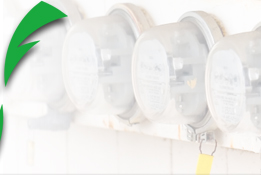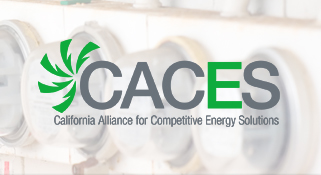 |
 |
 |
|
PUC moves to deregulate some energy By Paul Elias, Associated Press — May 25, 2007 SAN FRANCISCO — California energy regulators took a small but significant step Thursday to deregulate a portion of the state's electricity market, even as top Democratic lawmakers voiced opposition. Many critics blamed similar deregulation moves a decade ago for contributing to California's infamous power crisis in 2000 and 2001. The California Public Utilities Commission voted 4-1 to explore whether it has the legal authority to re-institute a program called direct access. The program allows large commercial customers, such as hospitals, universities and businesses, to buy service from electricity providers other than their regular utilities. Supporters include California State University, Wal-Mart Stores Inc. and dozens of other large energy users. They argued that direct access, also called retail energy competition, allows them to shop for lower rates. In December, a consortium of energy producers called the Alliance for Retail Energy Markets filed a petition with the PUC arguing that the market had stabilized enough to reinstate direct access by next year. "Consumers have choices for most of the purchases they make, and we will evaluate whether and how that may include electricity," PUC President Michael Peevey said. "Retailcompetition may exert further downward pressure on rates." A PUC report said it will take at least 18 months, and probably longer, to decide whether direct access can be reinstated. Consumer advocacy groups and others blame the program for contributing to the power crisis because energy providers were left largely unregulated in the late 1990s. The subsequent manipulation of power markets led to soaring utility prices, rolling blackouts and bankruptcy for the state's largest utility, Pacific Gas & Electric Co. "Introducing competition has not always brought about lower rates for customers," said Timothy Simon, the lone PUC commissioner to vote against the move. The state Legislature suspended direct access during an emergency session at the height of the power crisis in 2001. That action required large energy users to buy their power from traditional utilities, ensuring those utilities a steady revenue stream. The law also gave the state Department of Water Resources temporary authority to buy energy for customers of investor-owned utilities. Whether the five-member PUC even has the authority to reinstate direct access is an open question. The department stopped buying power on Jan. 1, 2003, but contracts it signed before that date are good through 2017. Consumer groups such as The Utility Reform Network, based in San Francisco, argued that the PUC has no authority until 2017 to implement direct access. Large commercial customers said that authority returned to the PUC once the Department of Water Resources stopped buying power. The action taken Thursday authorizes the PUC to look at the issue in three phrases. First it will determine whether it has the legal authority to implement direct access. It then will decide whether it should. If so, members will decide how and when to roll it out. The PUC's action came despite opposition from four top Democratic lawmakers, including Senate President Pro Tem Don Perata, D-Oakland, and Assembly Speaker Fabian Nunez, D-Los Angeles. In a letter, they said that only the Legislature can reinstate retail energy competition until 2017. "The prohibitions enacted are not ambiguous," they said in the letter, which also was signed by Sen. Christine Kehoe, D-San Diego, and Assemblyman Lloyd Levine, D-Sherman Oaks.
|
||||||||||
California Alliance for Competitive Energy Solutions — CACES
| © Copyright 2007-2023 California Alliance for Competitive Energy Solutions — CACES |
